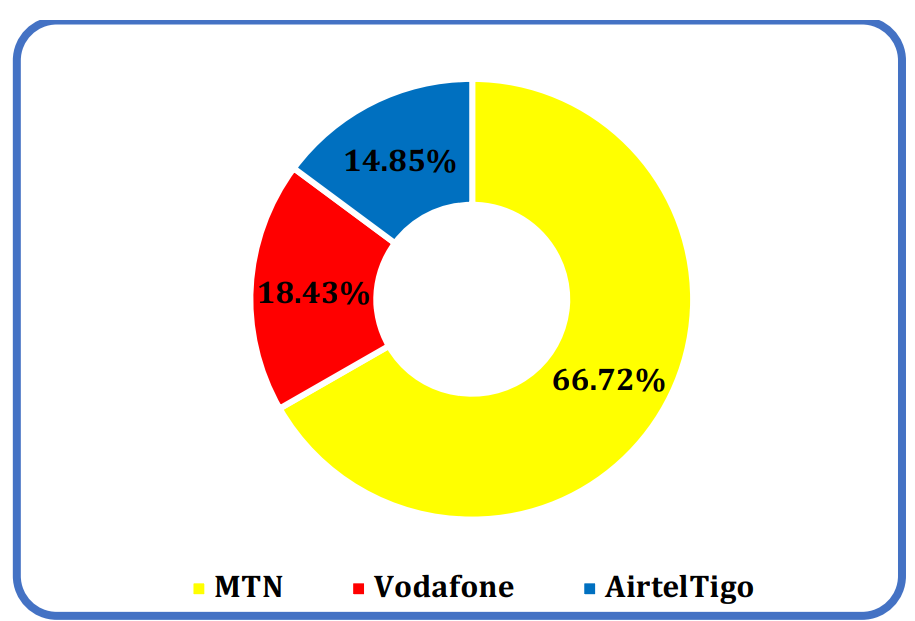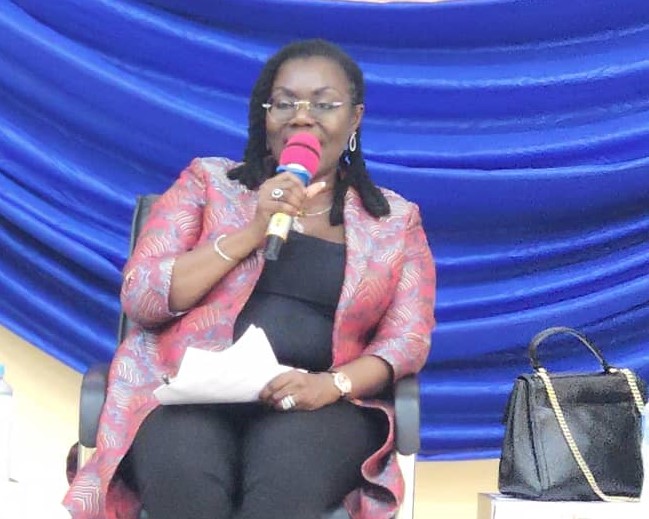
The talk about Ghana's worsening housing deficit may go on for a while because even if houses were built, the larger chunk of the 1.7 million Ghanaians without decent homes cannot afford to buy.
"When you talk about the deficit, they talk as if, if you were to build them now all those people can take them... if I had the technology that could reduce my properties by 30 per cent, okay, and you gave me 10 million dollars to go and build speculatively for the market, I will not touch it, I won't do it," says Harry Quartey, Chief Executive Officer of Emerald Properties.
Speaking to Business Day from his tranquil office in Cantonments recently, Quartey highlighted that the problem of Ghana's housing sector is not one of supply. Rather, buyers do not have adequate purchasing power.
His comments come on the back of government announcing in the 2018 budget a number of incentives to drive the development of affordable housing and at the same time reduce the burden of mortgages for Ghanaian workers.
It is usually the case that housing is priced high in Ghana because funding for developers is usually sought on the foreign market.
Apart from that mortgage rates have been hovering above 30 per cent while home buyers have actually found it difficult to even raise the initial funding for homes.
Even though Emerald Properties has recently won awards for finding its way around the problems and being able to market its properties, CEO Quartey wishes the situation was a lot better.
Here is an excerpt of our interview with him recently.
Your profile says you trained in accounting, went into the ICT area and then you worked in banking. Why did you decide, when you were going set up your own thing, to settle in housing?
The accounting stuff I did in the U.S. I did my undergrad in accounting then my MBA in finance after that I did some work with Mutual Fund Accounting, and dealing in real estate trust, that's where I found the interest. When I came to Ghana I worked with HFC and I did construction finance but the idea was always to try and go out on my own; the idea of coming to Ghana was to start a real estate trust and I realised the market wasn't ready for that so the best option was for me to actually do the development and eventually we can move to that level - the real estate investment trust. The IT thing was a family business that we also started.
Let's do a bit of tracking. How much did you invest and how much are you worth now?
What we started with was about, I will say, 180,000 dollars and that was for a piece of land and at that time I just had a few people together to raise that money. It was about five people and family and after that the rest has been trying to leverage on that with the banks and then a private equity firm came on-board in about 2008.
How many shareholders do you have now?
If you take out the bit from my family, I think there are three other shareholders that are outside the family.
You said 180,000 dollars. That's a six-figure. What are you worth now; nine-, 12- or 15-figure?
I'm sure we are in the nine-digit numbers.
Not many companies can tell that kind of story. Do you think you have been fortunate?
We have been. We have also worked hard to achieve it. It hasn't been easy. I mean real estate is a really tough market. You have to look at how liquid you are as well because people have started but did not last. We have been fortunate to be around and I think it's because of hard work, luck and being honest with the people you work with. It is very important; whether it be the banks, people that supply, it's always important that you honour your word and whatever you take from them you have to make sure you pay and sometimes at a very high cost.
How many jobs have you created?
If you look at direct - taking Emerald and our sister company, we have in excess of about 80 to 90 staff and when you look at the other side that's indirect, I'm sure we'd have hundreds of people that we have employed through various stages through our sub-contractors.
A lot of the time, we hear about the issue of interest rates being high. What band of interest rates will be suitable for growing the housing sector?
When you say interest rates you have to relate it to what is happening on the rest of the market outside Ghana. If I say outside Ghana, it may not even be necessarily our next door neighbours. Some of them have a very reasonable interest rate. In Cote d'Ivoire, for instance, I think interest rates are around 6-8 per cent. Nigeria, I'm not sure. I know some time ago they were around 16 per cent. I think anything in the range of what Cote d'Ivoire has or lower will be good for me if you really want to compete with developers that are seeking funding from outside. If they are getting it at much cheaper rate and you have to go and touch an exorbitant rate you are at a disadvantage. So, for me, anything in the range of, if you take the dollar, six per cent will be okay even though I don't think it's possible. And the cedi, if you can get it to a neighbourhood of around 12 to 15 per cent, I think it's something that can be manageable... I don't know what it will take. I think it will take a lot of guts and a lot of planning and implementation on the part of government to really get these rates down that low. I don't really see that in the immediate future so we, sort of, have to be content with what we have. What we have to do as developers, when we have to borrow, is to try as much as possible to make it a shorter term as possible. I also do look, I mean outside. I don't only look at Ghana and when you do outside the danger there is you are borrowing in dollars and if the cedi should depreciate then you also will be hit on that end. In most cases, I borrow in dollars. I hardly do any borrowing in cedis. Obviously, if the cedi were stable and the interest rates were the level I was talking about, we would be happy to borrow at the cedi level.
If things were the way you wished how many housing units can you deliver in a year?
If things were the way I wished, that's something me I think really depends on the demand side. You know you hear about these deficits all the time - the housing deficit of about 1.7 million. As far as I'm concerned we have to be really looking at the real demand here and I don't think it's anywhere close to that, if I had the demand for it, I mean the demand for it, any demand that I have I can increase my capacity to meet it. So, it's really not the supply end. I think it's really more to do with if you do it, do you really have the people that can afford to buy it and that is really, truly the fact of the matter. Our problem in Ghana, you know the real estate market, is not the supply. If the demand is there we will find a way, even with these high interest rates, to build for the citizens.
So, what is the problem? For instance, in your case, what is the demand per annum?
It's difficult to say because the 1.7 million deficit that we talk about, I don't think there many people who can afford the homes assuming that we had the capacity to put up 200,000 homes. I mean how many Ghanaians actually have the purchasing power to be able to buy them?
So are you saying you are building for a non-existent market?
Well, the market is there but not as much as you think because when you talk about the deficit they talk as if, if you were to build them now all those people can take them. I'm saying that's not the case. First of all, we talk about the cost of the housing - inputs and interest rates and all those things. If I had the technology that could reduce my properties by 30 per cent, okay, and you gave me 10 million dollars to go and build speculatively for the market, I will not touch it. I won't do it, even if these houses are in the price point maybe 30-50,000 dollars, which you know we consider affordable. I wouldn't do it because I don't have the confidence to sell those houses if I go and put it up. So, the issue is not the supply. You have to be able to empower the purchasers. Once we do that the developers will be able to meet that demand. I think enough talk about the 'houses are too high, let's go and bring it down.' If were to build 25 houses for 25,000 dollars now and I don't have 200 people lined up to be able to take those houses, it's not worth my doing it. I will go and do it and you probably see about ten people that can afford to buy that and what margins am I making.
So with all these challenges you still find a way to sell your homes. How do you go about it?
We play in both sectors of the market. We have apartments, in the cantonments, the airport and the north ridge and that what we've been known for. We did more of that before we ventured into the Prampram area to do some for the lower to middle-income. So, I think we've been lucky with the high-earned side. We tend to sell because of our pricing and we get a lot of repeat customers from that end as well. I must say that market is gone down as well because most people that buy are buying for investment purposes as well. The rental market is also a bit squeezed now so that market is not as buoyant as I would have said three years ago but we have been lucky on that side and even also looking at the lower side we still believe that is where the future is.
You have won the best property marketing company award. What did you actually do to be voted for the prize?
I think this year we have done quite a bit. I think in the previous years we were a bit quiet. We tend to really go by word of mouth to sell our properties. This year, we have been running real estate minute on Citi FM once a week where we give real estate advice and then we also organised green summit. This is something we did to ginger the conversation about going green in sustainable building in Ghana and that was something that was successful, highly patronised. For the real estate we also won best apartment. The building, sort of, spoke for itself - the Sapphire court. That's the one that won the award. And that's a building that we finished about a year-and-a-half ago.
What do those awards mean to you as a company?
It tells that people are recognizing what you are doing right and that sort of encourages you to keep doing it. So for us, while it doesn't come with any financial rewards, I think for us it is very important that the things that we are doing will help in being recognized by a third party. Therefore, that alone means a lot.
Does it place any challenge on you?
It does, and we have to challenge ourselves again and we have to do better than what we did in the past to win that award as they say even once you get up there it is even more difficult to stay up there. So, with that in mind, we obviously have to work even harder to stay recognized.
Some people win awards and then after a year we don't hear from them again. At what level can people expect you to be in, let's say, the next two or three years?
As a company, we have been around since 2001. We have been quiet but we were able to do that because of some of the markets we are in - the high-end. Now we want to play a much bigger role for the lower to middle-income market. These things are some of the other things we will have to do and continue doing to remain relevant in that space as well.
KEY FACTS:
*50% of Ghanaians live in substandard accommodation without access to any sanitary facilities.
*2.7 million live in only single bedrooms without any other facilities.
*Real estate companies can together deliver 2,500-3,000 housing units a year at minimum cost of $35,000
*An investment of $51 billion needed over 10 years to deal with housing deficit of 1.7m.
*Finance Minister says in 2018, about 10,000 housing units of various types shall be executed in all the regional capitals of the country.
Read Full Story


























Facebook
Twitter
Pinterest
Instagram
Google+
YouTube
LinkedIn
RSS